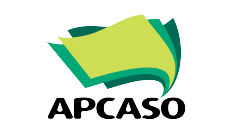The inequities which stained the world’s response to the COVID-19 pandemic are painfully familiar. Outbreaks, epidemics, and pandemics throughout human history have raised concern, time and again, about the lack of capacity to effectively respond to health crises across national and global levels. People have observed, for example, still deficient responses to HIV and Tuberculosis especially affecting disproportionately key populations, and every now and then the threat of emerging diseases with outbreaks of Monkeypox, Ebola and Zika. Countries in the Global South have relatively limited access to tools to respond to these diseases. According to the People’s Vaccine Alliance[1] responses to these outbreaks, epidemics and pandemics are hampered by the lack of investment in research and development (R&D) and manufacturing of medical tools in the Global South. The People’s Vaccine campaign pointed out that during the COVID-19 Pandemic, countries in the Global North had first access to vaccines while people in the Global South were last in the queue.
At the regional level in Asia and the Pacific, representatives of various civil society organizations came together for a dialogue on the 3 HLMs in Jakarta, Indonesia last March 2023 to collectively identify priorities for the region. This includes: 1) innovation and equitable access to pandemic medical products 2) governance 73) investment in resilient health systems 4) surveillance and 5) financing. To ensure that the CSO priorities are included in processes, a regional dialogue took place to garner strong support from Member States is necessary. This highlights the crucial role of local CSOs in influencing the positions and priorities of national governments to align to the CSOs agenda.
This toolkit is for you. This toolkit serves as an easy-to-use guide for local non-government organizations, community-led organizations, peoples organizations, professional organizations, and all other formations who are interested in campaigning for a people-centered, just and equitable, rights-based and gender transformative HLM on PPPR and CA+. The toolkit is designed in such a way that you can use any part as standalone materials or all parts of the toolkit that you think would be relevant as you prepare for your advocacy-related activities (e.g. meeting with decision-makers) and in preparing for your community consultations. It hopes to serve as a springboard for local discussions on the different but complementary processes surrounding PPPR and meaningful CSOs participation at various levels of health governance.
The toolkit shall have the following parts:
Advocacy Briefs
Advocacy briefs provide easy to digest information in an FAQ format on the three interrelated processes on PPPR.
- WHO CA+/Pandemic Instrument/Pandemic Accord
- International Health Regulation (IHR) Amendments
- High Level Meeting (HLM) for Pandemic Prevention, Preparedness, and Response (PPPR)
Community Engagement Guide
The community engagement guide is a set of materials that organizations can use in facilitating a Community Engagement Workshop (CEW) and mobilizing civil society organizations into action.
- Community Engagement Workshop Planning Guide
- Template Program
- Stakeholder Analysis Tools
- Campaign Strategy Template
- Documentation Template
- Letter to Decision Makers

